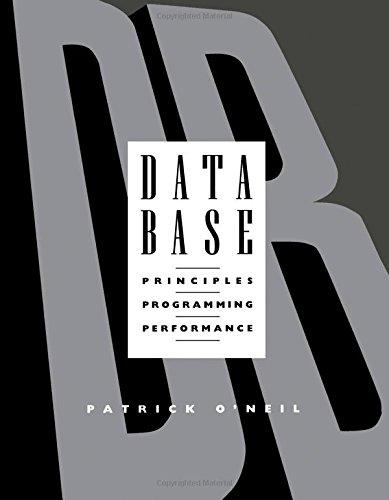Answered step by step
Verified Expert Solution
Question
1 Approved Answer
Represent the following in first - order logic. 1 . Represent the following sentences in first - order logic: a . All swans are white.
Represent the following in firstorder logic.
Represent the following sentences in firstorder logic:
a All swans are white.
b There is a black swan.
c All bowlers drink soda.
d Some dogs have fleas.
e There is somebody who loves everyone.
f Everybody is loved by someone.
g There is a barber in Ramallah who shaves all men in Ramallah who do not shave themselves.
h Politicians can fool some of the people all of the time, and all of the people some of the time, but they cant fool
all of the people all of the time.
Consider the following definite Hornclause KB:
Notation: : for all, : exists, &: and, : implication, : biconditional, ~: not
xy Smokerx & Friendsyx Smokery
xy Friendsxy Friendsyx
FriendsAdamBetty
FriendsCarlDavid
FriendsEddieAdam
FriendsEddieDavid
SmokerEddie:
Answer: Are Betty, Carl smokers? Show your work.
Assume we perform forwardchaining starting from this KB with all of the rules and facts already loaded and show the specific conclusions added in their exact order as rules are matched and fired. Assume rules and facts are always matched in the exact order given above and that newly inferred facts are immediately added to the end of the list.
Consider the following definite Hornclause KB:
xyz Parentxy & Parentxz & yz Siblingyz
xyz Siblingvw & Parentwu & Maleu Nephewuv
ParentBobMary MaleBob FemaleMary ParentBobFred MaleFred ParentMaryTom MaleTom ParentMaryAnn FemaleAnn
Assume backwardchaining rulebased inference is used to try to answer the query: NephewsFred
: Use a truth table to prove modus tollens is sound for proposition logic and to prove that PQ is equivalent to PQ
: Find the Most General Unifier MGU if one exists for the pairs:
fgxy c and fgfdxzc not unifiable
hcdgxy and hzdggayz
Pfa gX and PYY
PaXhgZ and PZhYhY
PXX and PYfY
Pa fx a and Pa fgy y
: Bonus not a must: Assume KB consists of the following rules:
R: Sodax Chipsy Cheaperx y
R: Chipsx Cerealsy Cheaperx y
R: Cheaperx y Cheapery z Cheaperx z
And the facts:
F: SodaSprite
F: ChipsRuffles
F: CerealsCheerios
F: CerealsMiniWheats
a Assume that all facts FF are known at the beginning of the inference process. Illustrate the process of forward chaining by listing all newly inferred facts. Assume that both rules and facts are matched and tried in the order of their appearance.
b Show how to prove CheaperSprite Cheerios using backward chaining and the KB given in part a Draw the graph for the problem, assuming rules and facts are tried and matched in the order given.
Step by Step Solution
There are 3 Steps involved in it
Step: 1

Get Instant Access to Expert-Tailored Solutions
See step-by-step solutions with expert insights and AI powered tools for academic success
Step: 2

Step: 3

Ace Your Homework with AI
Get the answers you need in no time with our AI-driven, step-by-step assistance
Get Started


